When the desktop computer came along, it needed human input. It’s no different with an RMS (revenue management system.) Even an AI-enabled RMS can’t think independently (and that’s a good thing!)
You’ve probably heard plenty about AI (artificial intelligence) chatbots that learn from biased human language and “deep fakes,” which are the 21st c. version of Photoshop. These are just a few real-life concerns in today’s emerging AI. Yet, as hoteliers and a society, we face the fundamental problems of learning how to use AI effectively.
Here’s the thing, when you think about RMS as a piece of software, you realize it’s a tool, and tools need humans to function.
An RMS is only a mathematical algorithm, and the role of an algorithm is to merge data and spit out predictions based on the data your revenue manager puts in.
Two Types of RMSs
Revenue management accounts for all types of variables. These include pickups and cancellations, lead time, market segmentation, weather, events, brand reputation, etc.
There are two types of RMSs, which reflect two different schools of thought.
1. “Rule-Based” RMS
More limited RMSs, often called “rule-based,” are very simplistic. They operate on basic algorithms which usually take into account one or two variables and automatically adjust prices (e.g., if my occupancy grows by x, then my price should grow by y, or if the market demand is at level x or competitive set is pricing around x, then my price should be around y) without contextualizing them in relation to other variables. Such software can be used by anyone who has no experience in revenue management because they trivialize revenue management. No real need for revenue managers in this case. But of course, the results are more limited.
Revenue management is not a set it and forgets it situation. The learning process is continuous because hotels change and evolve, the market changes, and the world changes.
2. “AI-driven” RMS
An AI-driven RMS (with a skilled revenue manager behind it) is a powerful combination. The AI-driven RMS takes into account all these multiple variables. Still, most importantly, they incorporate machine learning to learn how humans (revenue managers) react to these variables to replicate their behavior (increase or decrease prices and by what amount, or not change them at all).
Machine learning is part of AI (more on this below.) Whether chatbots, robots, or AI-enabled RMS, the machine learns from the humans that operate it. They don’t replace humans; they augment them.
The revenue managers are the “engineers” and trainers, and without them, most modern RMSs would not even exist. They’re the ones who know how to configure and teach the RMS, analyze the data, and continually feed the system (the RMS) because they’ve studied the discipline of revenue management.
The Role of the RMS
The RMS enhances the Revenue Manager’s role by speeding up the data collection and analysis, rate elaboration, and online distribution (assuming there is a seamless open API communication between all the systems, of course.)
When this is working well, it turns into the possibility of helping the revenue manager with the so-called autopilot. This autopilot helps integrate the functions of revenue managers, for example, pricing when they are off-duty or sick or overseeing multiple properties simultaneously.
That’s why AI-based RMSs must be continuously accompanied and monitored by skilled and professional human revenue managers in their learning process.
Just as search engines evolved thanks to the software engineers who understand and build complex algorithms, the predictions of your RMS develop based on the revenue manager’s understanding of the data they input.
An RMS is more than sophisticated software that collects, automates, and crosses a set of historical data, future data, and market data to predict customer demand and provide rate recommendations. This cross-section of data allows hotels to find the right price at the right time for each market segment for each room type within seconds. A skilled revenue manager can run different reports based on variable data to understand better the revenue potential based on changing factors.
In other words, you need an RMS, but you also need a revenue manager to interpret the data, make informed predictions and adjust based on historical data, demand, and competitors. Even the most advanced RMS can’t add insights and set a strategic course.
Examples of Successful Revenue Management Approaches
Below you find real-world examples of successful revenue management approaches but first, how does an RMS work?
Machine Learning Powers an RMS
A modern RMS includes AI (artificial intelligence) and ML (machine learning) as part of the function. The very name — Machine Learning, implies the machine learns over time and learns from humans. It’s a continuous process where the revenue manager feeds the data to the RMS and makes adjustments based on results. Over time, the RMS becomes more efficient with room pricing, and your revenue grows.
The RMS streamlines the data gathering and offers dynamic pricing suggestions. It doesn’t suggest a commercial strategy, and that’s where a skilled revenue manager comes in. This person decides the segmentation and configures the data used as inputs.
Many GMs and owners don’t have the experience or time to analyze the data from an RMS and make strategic adjustments. The revenue manager’s role is trained in analysis, business intelligence, and cross-functionality.
The Revenue Manager recognizes the strategic part comes first. They know how to read the data, what questions to ask, and how to make adjustments. It’s the difference between hiring an architect to build your dream house vs buying some tools and materials to do it yourself.
Without human interpretation, the software is almost useless. It’s easy to enter the wrong information in the RMS if you don’t know how to interpret the demand, historical data, and competitors.
Of course, you can get some results, but it’s not efficient, and you won’t get the BEST results. For instance, if you’ve never practiced revenue management and always had steady pricing, you’ll likely get some incremental revenue with a few changes from RMS and favorable market conditions.
Yet, you won’t get as much as you could unless you add human strategic thinking.
The RMS Requires a Revenue Manager for the Best Results
Imagine you’re a GM or owner of a small independent hotel. You’ve read up on revenue management and realized that dynamic pricing is the best way to improve your room revenue every day of the year. However, you don’t have a revenue manager on staff, which seems complicated and expensive. So, you might think to yourself, “Let’s try out the software and see how it goes.”
So you subscribe to an RMS but quickly realize you don’t know what data to enter for the best results. For example, are some of your double rooms large enough for 3-4 people? Can you sell them as a family room or a suite and charge more?
However, you don’t configure all of this information in the RMS, and you say you have double rooms. This means your output is room rates based on your entered data rather than on possibilities based on your room sizes and the season.
A revenue manager brings human strategic thinking. Let’s say you usually sell your rooms as double rooms, but a revenue manager can say, “OK, but it’s possible to sell some of the rooms differently. Maybe I could add an extra bed and sell them as family rooms.” If you change the room type like this, you’ll feed the RMS different data and get different results. In this case, the RMS will recommend a family room price in relation to a different level of demand.
The difference is that there’s always a human decision behind the final output. Over time, the RMS learns the parameters and gets better at dynamic pricing.
Yet, the software doesn’t tell you that you could sell the rooms differently, and the software also doesn’t tell you the best channels for your hotel’s revenue.
Revenue Management, Channel Distribution, and Brand Reputation
Another example is you might use specific distribution channels, and by implementing an RMS, you experience a +10% incremental revenue. But what if other channels attract different targets of clients and nationalities? Maybe they’re more profitable and lead to 30% of incremental revenue, but the RMS doesn’t tell you that.
A revenue manager can identify channels that excel in some geographic regions or with some market segments. Once you add that channel, you’ll see a difference in the incremental demand and pricing recommendations.
Some hotels use an RMS without a Revenue Manager and find they have many room allotments conceded to corporate customers or tour operators at fixed rates, or they’re filled up with groups when they shouldn’t be. Or they close the online channels when they should not, and an RMS is useless in such cases.
The RMS is very good at doing mechanical, repetitive tasks. It analyzes data, provides pricing recommendations, and pushes the rates on online channels. It saves time because it does the job much faster and more accurately than people. Yet, experienced revenue managers understand which raw data is most helpful and helps the machine learn optimal pricing strategies.
For example, if you have minimum stay and non-refundable rates, you’ll have a specific type of demand, and the RMS will act accordingly. The RMS will learn that by doing x, demand increases. But if you introduce flexible conditions, you’ll get more visibility and bookings via OTAs, website, and offline.
Or a revenue manager might consider it helpful to invest in a particular amenity or service (e.g., spa, pool, gym, parking, etc.), or make adjustments in descriptions and pictures. As a result, the demand will likely change, and RMS’s inputs will inevitably need to change.
Every time you change the scenario, the output changes.
We’ve discovered in our work with hotels the importance of brand reputation. Your hotel’s score on Booking.com, TripAdvisor, etc., impacts its visibility, and more visibility often equals higher demand, occupancy and ADR, therefore more revenue.
There are many ways you can boost your hotel’s reputation. For example, this ebook shows how the improvements in breakfast service, overseen by a skilled revenue manager, can improve brand reputation and visibility, resulting in a repricing approach from the RMS.
Your reputation score can impact your hotel’s revenue when combined with an RMS and Revenue Manager. Your hotel has an 8.7 on Booking.com and 4.5 on Tripadvisor. You implement an RMS and see 15% incremental revenue. But what if you had 9 on Booking.com and 5 on Tripadvisor? You can boost your ADR and potentially reach a 35% increase. The RMS doesn’t give you that insight but, most importantly, doesn’t tell you how to get that reputation score. Your Revenue Manager can adjust to achieve that enhanced reputation score and then feed the system with new data, so the RMS learns to price better.
These are complexities that you can’t discover without the benefit of a human Revenue Manager.
Autopilot and Human Activities
An RMS works well during normalized and well-established market patterns. But 2020 and 2021 years have challenged this concept. For example, in this article from Costar, some revenue managers working for major USA brands tell how they adjusted the RMS to drive business in a time of crisis.
They switched off the autopilot, overrode the RMS’s rate recommendations, and found creative ways to capture alternative demand and drive business and profitability beyond just pricing. Another recent example was the invasion of Russia in Ukraine. Many revenue managers in some countries have been forced to switch off autopilot and review their commercial strategy.
No one can exclude other (negative or positive) events in the future where revenue managers need to switch off the autopilot, temporarily set the manual mode and train the machines repeatedly. The software alone can’t give insights into investments or cutting costs, staff scheduling, and other key activities. That’s too sophisticated for a machine.
Some analysts say that RMSs will fully automate revenue management – as in, revenue management won’t need people. These analysts tend to conflate revenue management and pricing as synonyms. However, pricing is just a small part of the more complex and broader world of revenue management.
And while pricing can and must be fully automated on most occasions, the entire revenue management process simply cannot. While every hotel has specific ways to boost revenue, it’s not only pricing. That’s the final part of the process. Pricing is just a consequence, not the cause. Check this article for more details.
Hopefully, you’re seeing the impact of a revenue manager combined with a machine by now. Humans can offer creativity and strategy, machines provide efficiency and accuracy, and combined revenue will skyrocket. RMSs should be seen as a modern and positive version of the Greek myth of the Centaurus, where the AI (horse) represents the ideal extension of the human (creative and interpretative) part.
Does it Make Sense to Outsource Revenue Management or Hire In-House?
As a small, independent hotel, you don’t have the deep pockets of a major hotel chain. Some large hotels spend between 5K and 10K dollars a month for a revenue manager and RMS.
Look at companies like Radisson Hotel Group or Citizen M. They have always been very tech-oriented and prone to the use of automation to streamline processes. Yet, they’ve always been pioneers in technology, and they’re constantly hiring Revenue Managers (human beings) to manage their RMS and other automation, as specifically outlined in their job listings.
Furthermore, the main AI-based RMSs on the market feature revenue managers or revenue directors as main testimonials on their websites. These figures are the only ones who studied the discipline and understood how to use the systems proficiently and profitably. And it’s no wonder that these popular AI-driven RMSs target revenue managers (humans) in their sponsored posts on social networks such as Linkedin.
Suppose you’ve never practiced revenue management and only had static pricing. In that case, you’ll see some incremental revenue right away with just an RMS and favorable market conditions (no pandemic, wars, natural disasters etc.). But statistically speaking, on a sample of more than 2.000 properties worldwide studied by Franco Grasso Revenue Team, whatever incremental revenue you gain with an RMS alone should be multiplied by at least three times if you have a skilled revenue manager behind it. The Revenue Manager creates, executes, and oversees the strategy behind the software.
For instance, if an RMS (without a revenue manager) brings 100.000$ yearly incremental revenue, a skilled Revenue Manager using the RMS properly can get at least 300.000$. Even when you consider the cost of a revenue manager (let’s say between 50 and 100K dollars per year), the extra revenue still absorbs the cost. So the benefit of saving the cost of the salary for a skilled revenue manager can be largely and negatively offset by the loss of incremental revenue generated by a proficient human revenue manager.
That’s why large chains invest large amounts of money on revenue management (humans plus software) as the incidence on total revenue is minimal, statistically speaking between 1 and 5%.
However, it makes sense to turn to outsourcing experts for smaller and independent hotels. Some outsourcing companies allow hoteliers to turn revenue management into a performance-based variable cost by providing both human revenue managers and AI-based RMS without fixed costs. These companies usually charge a small percentage on the incremental revenue versus the budget or the best historical year. It’s a risk-free way to pay revenue management only if there is a real return.
Free Guide: 10 Things To Know About Revenue Management
Hotel Revenue Management is an innovative economic discipline that involves the harmonious and integrated use of sales channels, distribution strategies and market-oriented dynamic pricing to obtain the highest profits possible from each hotel.
This ebook is an introduction to revenue management for executives, general managers and hotel owners. Within the ebook “10 Things To Know About Revenue Management”, you’ll learn the principals of revenue management. Click here to download the Guide “10 Things To Know About Revenue Management”.
Whether you consider revenue management as an in-house or outsourced activity, one thing is sure: RMSs will never replace revenue managers because revenue managers are the primary software engineers and developers of all modern AI-driven RMSs.
More Tips to Grow Your Business
Revfine.com is the leading knowledge platform for the hospitality and travel industry. Professionals use our insights, strategies, and actionable tips to get inspired, optimize revenue, innovate processes, and improve customer experience.Explore expert advice on management, marketing, revenue management, operations, software, and technology in our dedicated Hotel, Hospitality, and Travel & Tourism categories.

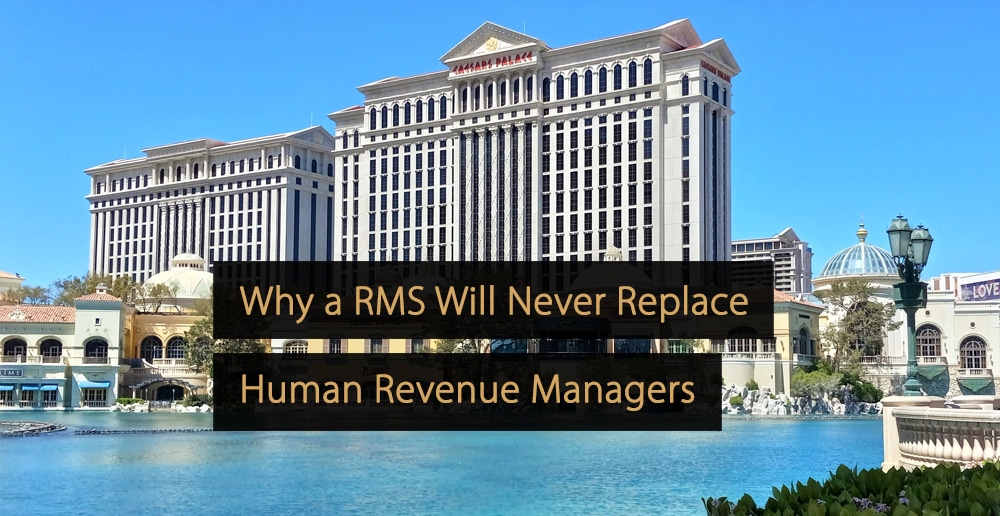
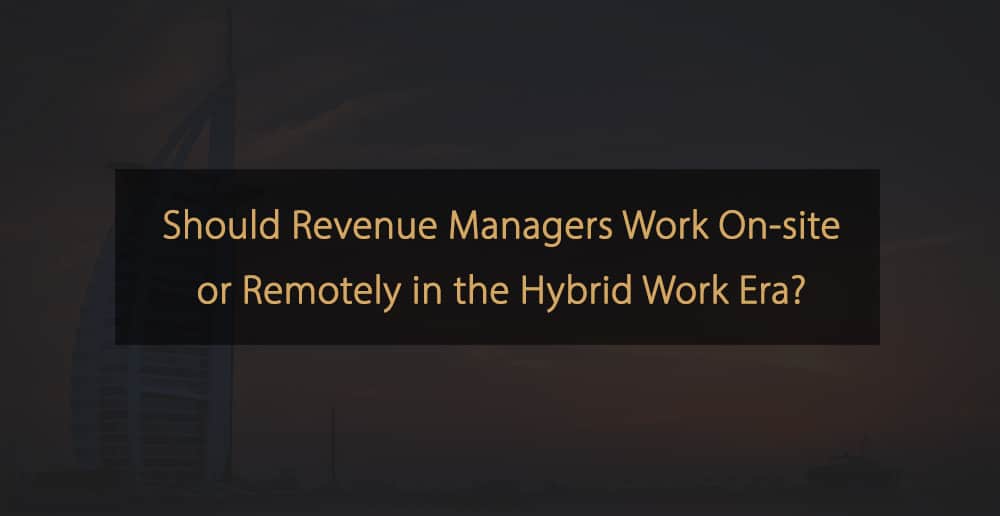
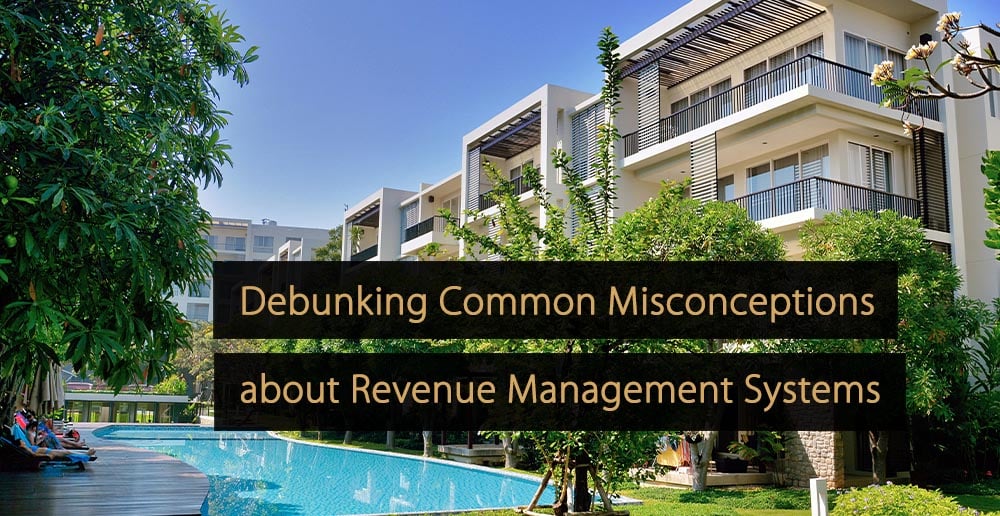
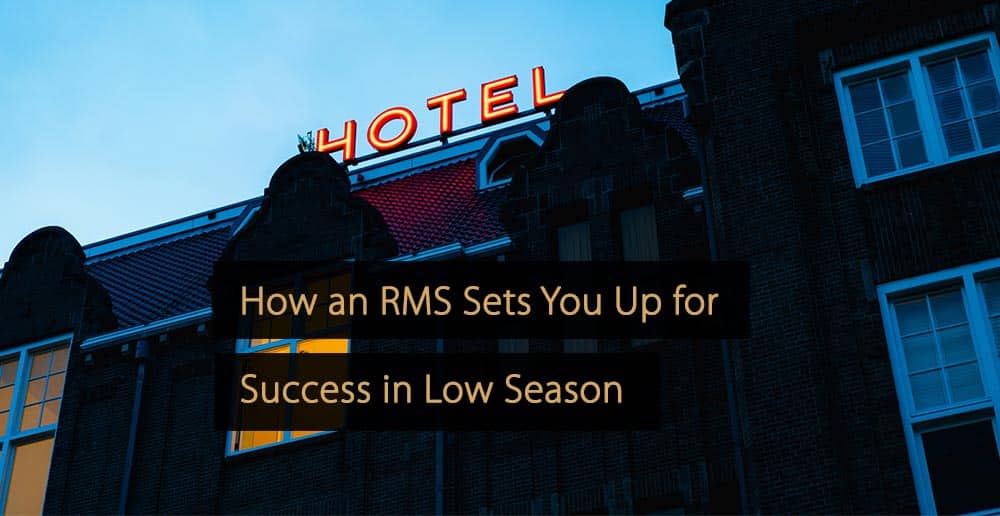

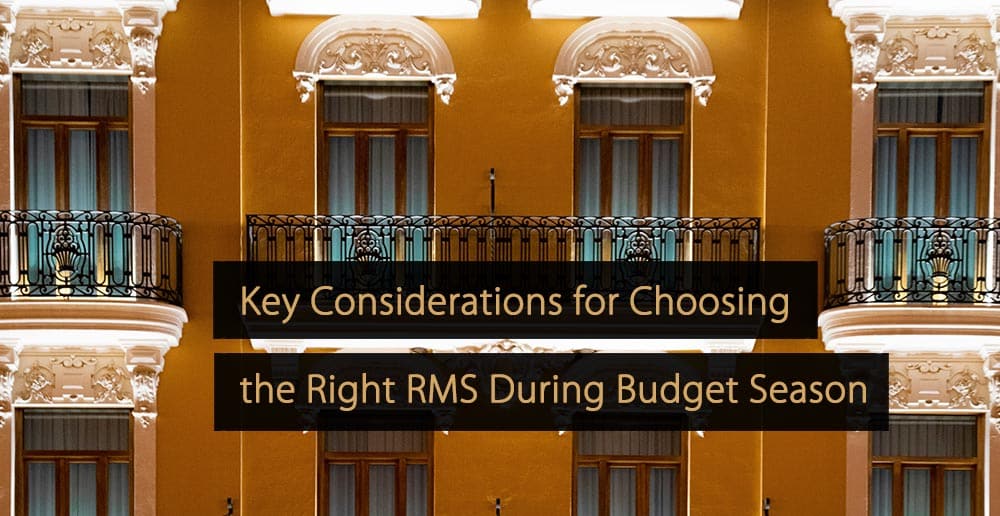
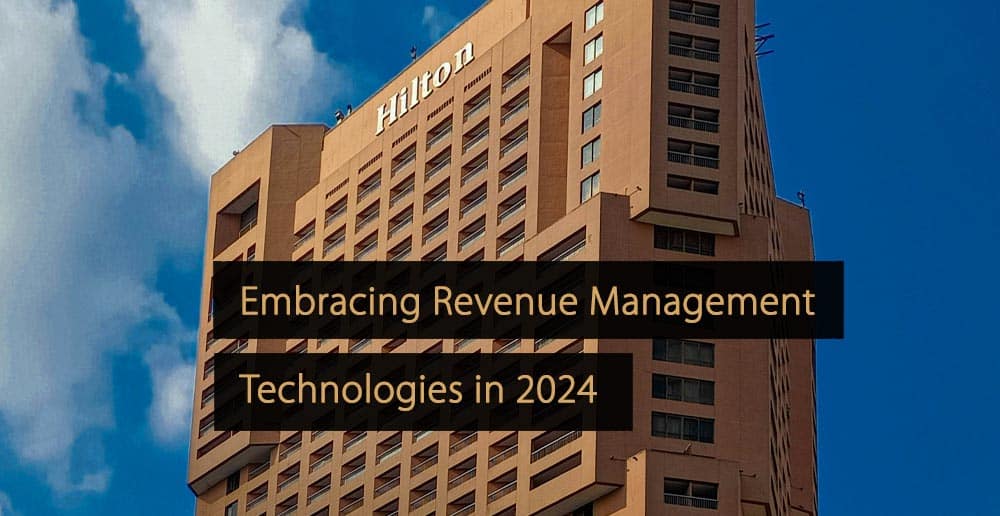
Leave A Comment